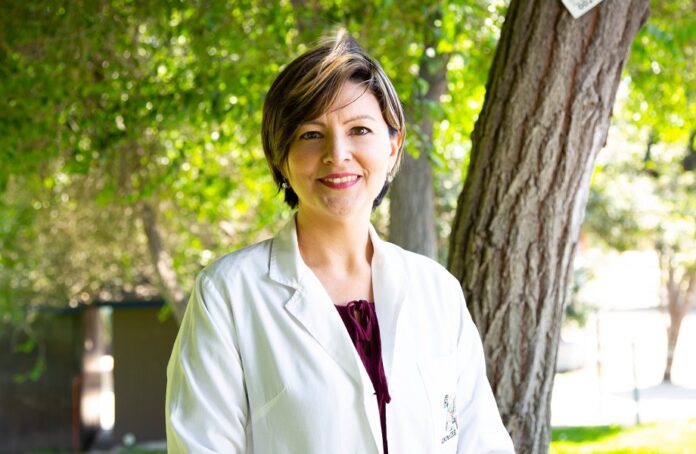As things stand today, there is a marked shortage of registered nurses (RN) within the US healthcare workforce. All stats point to the fact that not enough nurses with even the most basic qualifications are available to take over positions left empty across several states. Consequently, highly qualified advanced practice registered nurses (APRN) are an even rarer find in proportion to the demand.
As a direct result of this shortage, nurse practitioners(NP) seldom find themselves unemployed for long. If anything, there are always extra hours of work for them to take up due to the deficit. So, if you are already an MSN-NP, is there really a point to pursuing a DNP in Nurse Practitionership? As it turns out, there isn’t just one; in fact, there are several practical points to pursuing a doctorate. Stay with us as we discuss what those are exactly.
Preferred for Full Practice Authority (FPA)
Nurse practitioners are allowed to be autonomous while providing primary and secondary care in 24 US states, as well as in three US territories. An NP can apply for and hold Full Practice Authority (FPA) without a physician’s supervision, allowing them to open their own clinics, diagnose patients, and even prescribe scheduled medication within the state/area jurisdiction. If you are considering free practice, check the list below and see which states and special territories in the US allow full practice to NPs.
States:
- Washington (WA)
- Oregon (OR)
- Idaho (ID)
- Montana (MT)
- Wyoming (WY)
- Colorado (CO)
- New Mexico (NM)
- Hawaii (HI)
- Nevada (NV)
- Arizona (AZ)
- Alaska (AK)
- Nebraska (NE)
- North Dakota (ND)
- South Dakota (SD)
- Delaware (DE)
- Maryland (MD)
- Minnesota (MN)
- Iowa (IA)
- Maines (ME)
- Massachusetts (MA)
- Connecticut (CT)
- New Hampshire (NH)
- Rhode Island (RI)
- Vermont (VT)
Special Territories:
- Northern Mariana Islands (MP)
- District of Columbia (DC)
- Guam (GU)
While a doctorate degree is not an essential requirement for getting FPA in any of the 24 states or the three special territories, DNP-NPs are preferred in all of them. What this means is:
- You will find it easier to register as an independent medical practitioner with the state medical authorities if you have completed your DNP
- Most high-payinghealthcare facilities will prefer to hire DNP-NPs as independent medical practitioners, over MSN-NPs
- Both patients and employers tend to prefer doctorate nurse practitioners as independent medical practitioners
Assurance of Bigger Paychecks
It should be made clear that the average salary of a nurse practitioner ($112,700 approx.) is calculated by taking the salaries of both MSN-NPs and DNP-NPs into consideration. Therefore, how much a nurse practitioner will earn depends on factors such as their location of practice (state and city), employer, expertise/specialization, and experience. Since top hospitals and healthcare facilities always pay the highest salaries but tend to prefer nurse practitioners with doctorate degrees on their resume, DNP-NPs naturally get paid more by default.
Understand that DNP-NPs hold leadership positions and earn a significantly higher than average salary even in states that do not allow FPA to APRNs. For example, NPs take home $135,500+ per year on an average in New York, although the state only allows limited/reduced practice authority to nurse practitioners. At the same time, NPs IN Albuquerque, New Mexico earn only about $105,500 per year (avg), despite being regarded as independent medical practitioners. The advantage of having a DNP on the resume is that in both locations, you will be preferred for the highest paying jobs.
Opportunity to Help Children
MSN-PNPs are somewhat limited in their ability and qualifications to provide acute care to children. In fact, only 8% of all working pediatric nurse practitioners in the US have the necessary training, knowledge, and certifications to provide acute pediatric care today. With over a million children in rural and low-income regions being cut off completely from pediatric care, more pediatric nurse practitioners with the necessary acute care certifications are needed desperately.
The DNP in Acute Care Pediatric Nurse Practitioner Program from Baylor University was developed specifically to address the shortage of qualified acute care pediatric nurse practitioners. Over the last 60 odd years, the number of chronically ill children has grown by 400%, which once again highlights how much each PNP can do for the children by getting a DNP in acute pediatric care.
Opportunity to Lead and Teach
If you wish to pursue a career in academics, then a PhDwould feel more suited, but there is more to making the decision than you might be led to believe. In case you are a working nurse who wishes to keep his/her opportunities to teach open in the future, then a DNP will always be the better option for you. Being a more professional degree than a PhD in Nurse Practitionership, a DNP-NP course provides you with far more opportunities in the short and the long term. In medical fields, a practice-based terminal degree like DNP always holds more value since it expands a professional’s level of applicableexpertise.
Not only will you be able to avail leadership opportunities in active medical care after getting your DNP, but your path to becoming a nursing educator will also remain just as open. Someone with longer work experience in the field, as well as a terminal (highest) degree will always have plenty of opportunities in research and academics as well. In fact, some of the most reputed nursing schools in the US prefer to have more DNP educators in their faculty because of the advantage they have in terms of practical experience and professional rapports with high-level executives.
As should be evident by now, there are several professional and practical advantages to pursuing a DNP in nurse practitionership. There is a high likelihood that you already knew some of the advantages we just discussed because an experienced healthcare professional thinks about getting a doctorate only when they have a few good reasons in mind already.


